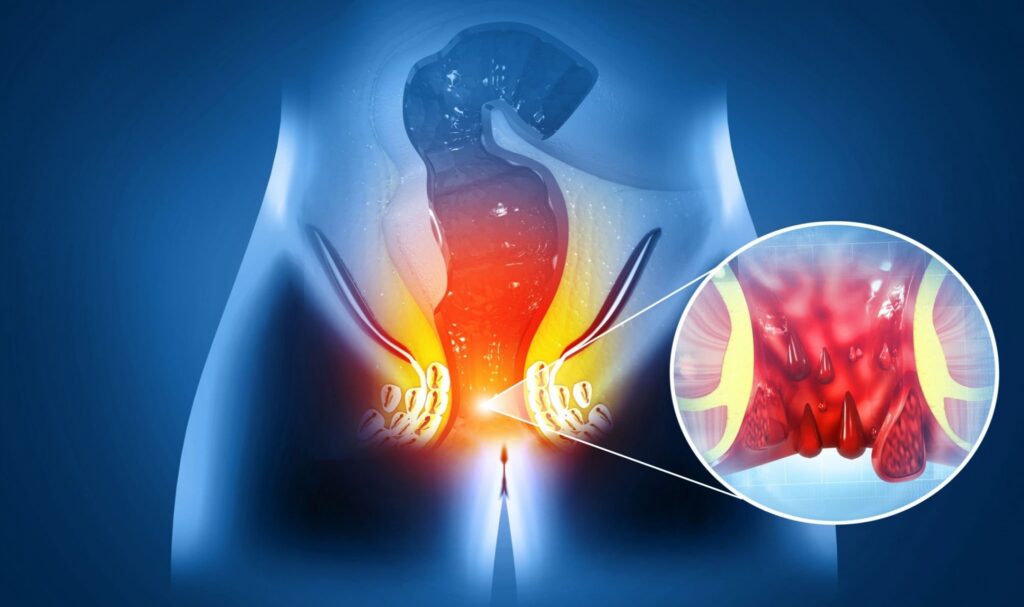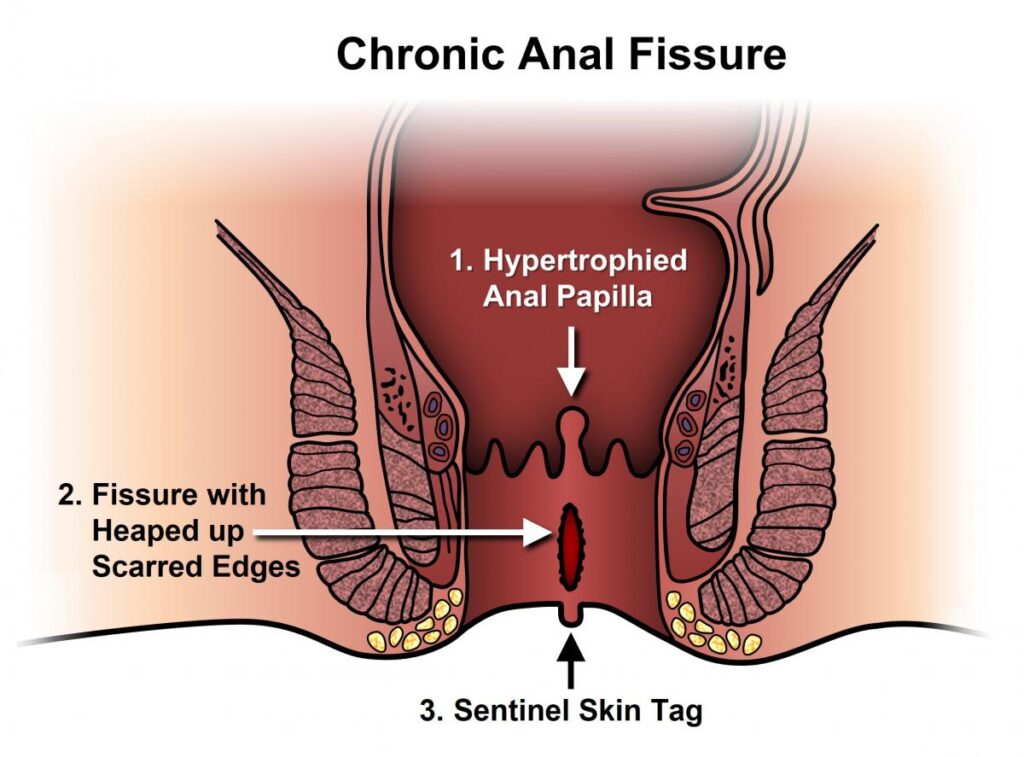Fissure

Understanding Anal Fissures
Causes, Symptoms, Treatment
An anal fissure is a common condition characterized by a small tear or split in the lining of the anus. This condition can cause significant discomfort and pain, especially during bowel movements. In this article, we will discuss the causes, symptoms, diagnosis, and treatment options for anal fissures. We combine ancient Ayurvedic wisdom with modern medical techniques to provide comprehensive care for anal fissures. Our expert team of doctors and state-of-the-art facilities ensure that you receive the highest standard of treatment with minimal discomfort and quick recovery.
Causes of Anal Fissures

Anal fissures can occur due to various reasons, including:
- Constipation: Hard and dry stools can cause a tear in the anal lining.
- Chronic Diarrhea: Frequent bowel movements can irritate and damage the anal lining.
- Straining: Excessive straining during bowel movements can lead to fissures.
- Childbirth: The strain during childbirth can sometimes cause fissures.
- Inflammatory Bowel Diseases: Conditions like Crohn’s disease can increase the risk of developing fissures.
- Anal Intercourse: Can sometimes cause tears in the anal lining.
Symptoms of Anal Fissures
The symptoms of anal fissures include:
Pain
Sharp or burning pain during and after bowel movements.
Bleeding
Bright red blood on the toilet paper or in the stool.
Itching and Irritation
Around the anus.
Visible Tear
A small crack or tear in the skin around the anus.
Spasms
Muscle spasms in the anal region.
Diagnosis of Anal Fissures
Diagnosing an anal fissure involves a physical examination by a healthcare professional. The diagnosis process may include:
- Visual Inspection: A doctor can often see the tear during a visual examination.
- Digital Rectal Exam: In some cases, a digital rectal exam may be necessary to assess the condition.
- Anoscopy: A small, tube-like instrument may be used to view the anal canal and rectum.
Treatment Options for Anal Fissures
There are several effective treatment options available for anal fissures, ranging from conservative measures to advanced surgical procedures:
Lifestyle and Home Remedies
Fiber-Rich Diet: Increasing fiber intake to soften stools. Hydration: Drinking plenty of water to prevent constipation. Warm Sitz Baths: Soaking the anal area in warm water several times a day to relieve discomfort. Avoid Straining: Avoiding excessive straining during bowel movements.
Medications
Topical Anesthetics: Over-the-counter creams and ointments to reduce pain and discomfort. Nitrate Ointments: Prescription medications to relax the anal sphincter and promote healing. Calcium Channel Blockers: Applied topically to reduce pain and heal fissures.
Botox Injections
Botulinum Toxin: Injections to relax the anal sphincter muscles, reducing pain and allowing the fissure to heal.
Surgical Options
Lateral Internal Sphincterotomy (LIS): A minimally invasive procedure to cut a small portion of the anal sphincter muscle, reducing pain and promoting healing. Fissurectomy: Removal of the fissure and surrounding tissue to allow for better healing.
We offer Ayurvedic Treatments based on the Ashta Vaidya Tradition from Kerala, India.
Happy Client
0
K+
Product Sold
0
K+
Book Online
Book Your Consultation Today
Take the first step towards relief and recovery. Book your consultation with our expert team and experience the benefits of advanced anal fissure treatment at Dhanvantari Super Speciality Ayurveda Hospital.
Let's Talk
0265-2493300







